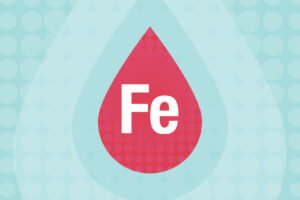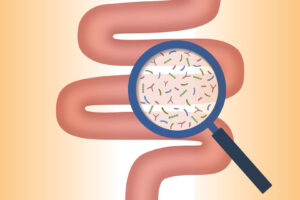As the COVID-19 vaccine is administered throughout New Jersey, many people are questioning whether they should get the vaccine when their turn comes. It’s important to understand the facts about the vaccines from a source you can trust and not get taken in by misinformation spreading from unsubstantiated sources. Below we provide the truths to some of the myths we’ve heard.
Myth: The COVID-19 vaccine is unsafe because it was developed so quickly.
Fact: Although the vaccines were developed in record time, it has gone through the same process as every other vaccine, meeting all safety standards. No steps were skipped. The process has been quicker as a result of strategic efforts to run concurrent trial phases, as well as a commitment to help condense timelines and reduce or eliminate months-long waiting periods during which documents would be prepared or be waiting for review. The two vaccines currently being given to healthcare providers – Pfizer-BioNTech and Moderna – were proven safe and effective in the most rigorous form of study, randomized clinical trial. In these clinical trials, with more than 70,000 participants between the two studies, the PfizerBioNTech vaccine was 95% effective, and the Moderna vaccine was 94% effective. In addition, although the COVID-19 vaccines are new, the technology used in mRNA vaccines, like those developed by Pfizer-BioNTech and Moderna, has been studied for decades.
Myth: The COVID-19 vaccine will alter my DNA.
Fact: The Pfizer-BioNTech and Moderna vaccines are known as mRNA vaccines. Receiving an mRNA vaccine will not alter your DNA. Messenger ribonucleic acid, or mRNA, instructs cells to make the “spike protein” found on the new coronavirus. When the immune system recognizes this protein, it builds an immune response by creating antibodies — teaching the body how to protect against future infection. The mRNA never enters the nucleus of the cell, which is where our DNA (genetic material) is kept. The body gets rid of the mRNA soon after it’s finished using the instructions. In essence, the COVID-19 vaccines are using the body’s natural defenses to safely develop immunity to the virus.
Myth: The COVID-19 vaccine includes a tracking device.
Fact: Vaccine injections do not contain tracking microchips. This rumor originates from a video shared thousands of times on Facebook and makes false claims about the syringe manufacturer, which has a contract with the government to provide medical-grade injection devices for vaccines. No vaccines contain microchips or any device that would track or control your body.
Myth: The COVID-19 vaccine has severe side effects such as allergic reactions.
Fact: Common expected side effects of a vaccine may include fatigue, fever, chills, headaches, muscle or joint aches, pain or swelling at the injection site, or nausea. These side effects are similar to that of the flu shot, but they may be more pronounced, especially after the second dose. Severe side effects – such as anaphylaxis — have been extremely rare, but people can have allergic reactions to vaccine ingredients. That’s why those who have a history of allergic reactions to the ingredients of the vaccine should not get the vaccination.
Myth: COVID-19 vaccines cause infertility.
Fact: This rumor spread from a claim on social media that the “head of Pfizer research” said the COVID-19 vaccine “is female sterilization.” The claim has been shown to be false and a hoax. To start, the person quoted in the article was not the head of Pfizer at all and is someone who has been known to spread false information about COVID-19 in the past. Plus, studies have shown there are no significant safety risks from taking the vaccine, other than those already mentioned.
In fact, a joint statement from the American Society for Reproductive Medicine, the American Society for Reproductive Medicine (ASRM) the American College of Obstetricians and Gynecologists (ACOG) and nine other professional organizations endorsed the vaccine, saying the benefits of COVID-19 vaccination far outweigh the risks. In addition the ASRM stated that it was against “withholding the vaccine from patients who are planning to conceive, who are currently pregnant, or who are breastfeeding and encourages patients undergoing fertility treatment to receive vaccination based on current eligibility criteria.” The group pointed out that “mRNA vaccines are not composed of live virus, they are not thought to cause an increased risk of infertility, first or second trimester loss, stillbirth, or congenital anomalies.”
Myth: The Pfizer vaccine is better than the Moderna vaccine.
Fact: Both vaccines use the same basic technology, known as mRNA, meaning they teach cells to make a protein that prompts and immune response. Each proved remarkably effective in trials, with more than 94% efficacy rates in protecting against COVID-19. The vaccines were both effective for different genders and races, as well as people with underlying medical conditions. Side effects for both were similar–generally mild and temporary.
Pfizer’s two-dose timeline span is slightly shorter than Moderna’s. Because the Moderna vaccine doesn’t need to be transported and stored in temperatures as cold as the Pizer-BioNTech product, it may be the better version for facilities or locations that do not have the appropriate refrigeration capabilities. Keep in mind, it’s very unlikely people will be able to choose which vaccine they get, as the federal government is directing shipments based on manufacturing availability.
Myth: The Moderna vaccine can’t be used in those who have dermatologic fillers.
Fact: Two of the 30,000 Moderna trial participants, who had a history of dermatologic fillers, had facial swelling for two days. There is little reason to be concerned about this reaction and others from the vaccine, as they can occur with all vaccines, including the flu shot.





